According to Prof. Dr. Pham Van Cuong, science and technology were the key factors in achieving the goal of low-emission agriculture.
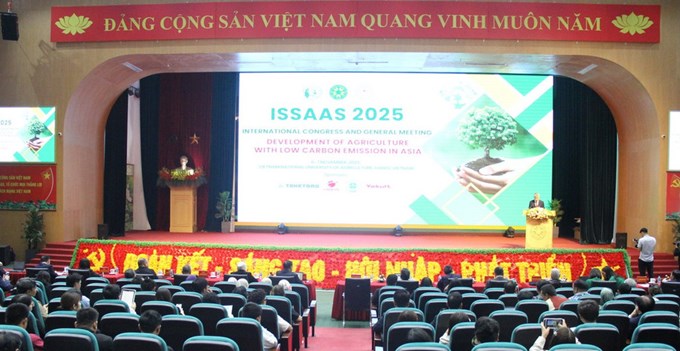
Overview of the Conference
On November 6, Vietnam National University of Agriculture (VNUA), in collaboration with the International Society for Southeast Asian Agricultural Sciences (ISSAAS), organized the 2025 ISSAAS International Conference, themed “Developing Low-Carbon Agriculture in Asia”.
Prof. Dr. Pham Van Cuong, VNUA’s Vice President, shared that at the conference, scientists focused on discussing research related to reducing carbon emissions in crop and livestock production, such as reducing production inputs, saving irrigation water, and applying biotechnology and microbiological techniques to control and mitigate greenhouse gas emissions.
He also affirmed that science and technology were the key factors in achieving the goal of low-carbon agriculture. To this end, it was of importance to promote the application of genetic technology, low-emission fertilizer technology, and environmental and waste treatment technologies in order to reduce greenhouse gas emissions and move toward green and circular production models.
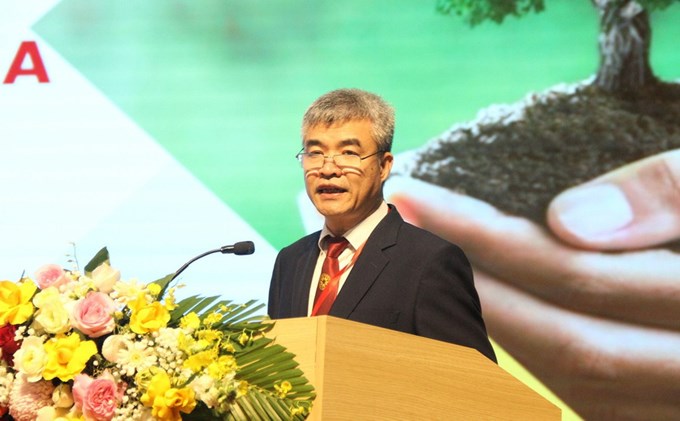
Prof. Dr. Pham Van Cuong, VNUA’s Vice President, delivers a speech at the conference
According to Prof. Dr. Pham Van Cuong, digital technologies in nutrient management for crop production and feed regulation in livestock farming were practical solutions to improve production efficiency while reducing carbon emissions.
As a leading institution in agricultural education and research in Vietnam, VNUA had carried out numerous research projects focusing on digital transformation and the application of smart technologies in agricultural management.
The research teams focused on low-fertilizer cultivation, reducing methane emissions in rice farming and livestock production, treating livestock waste using microbial technologies, and applying artificial intelligence solutions in environmental management and agricultural production.
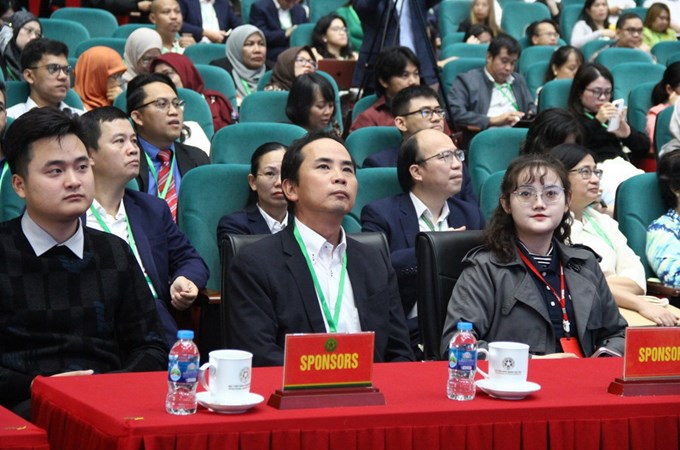
Domestic and international experts attended the conference
“These outcomes are fully aligned with the orientation of the Conference. Vietnam needs to take advantage of international cooperation to learn from the experiences of Japan and Southeast Asian countries, while also sharing its own research findings,” shared Prof. Dr. Pham Van Cuong.
The 2025 ISSAAS Conference brought together leading scientists from Japan and Southeast Asian countries to exchange experiences, technological solutions, and strategic directions for developing sustainable and environmentally friendly agriculture.
The event served as an important international scientific forum, where researchers shared results, discussed models and solutions, and contributed to shaping a greener, more modern, and more efficient agricultural future.
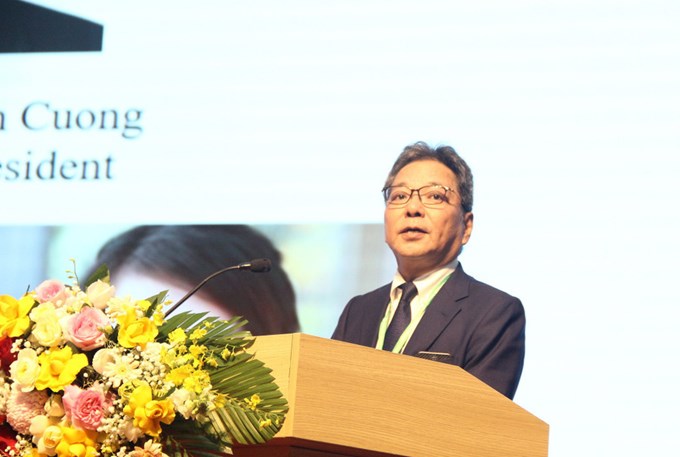
An international expert delivers a speech in the Conference.
Under growing environmental pressures and the urgent demand for sustainable development, the transition to low-emission agriculture was no longer a choice but an imperative to ensure regional food security.
Therefore, all presentations shared a common goal which was to promote research collaboration and the training of high-quality human resources, contributing to the development of a sustainable, low-carbon, and environmentally friendly agricultural sector in Asia.
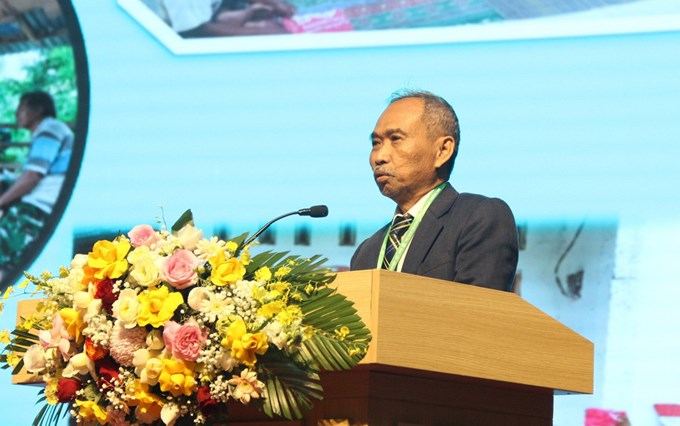
The conference receives many insightful and dedicated presentations from international experts and scientists.
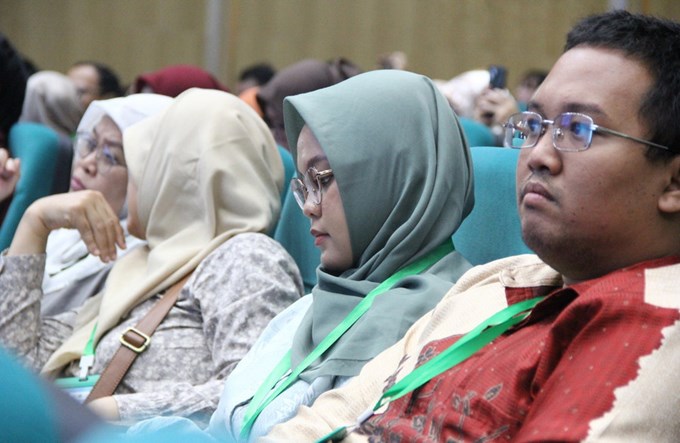
International experts and delegates attended the Conference.
This year’s conference received nearly 200 scientific papers from domestic and international researchers, focusing on areas such as crop science, biotechnology, environment, agricultural economics, and digital transformation in agriculture. The conference was not only a platform for knowledge sharing but also marked the beginning of a shared commitment among nations to develop green agriculture, effectively adapt to climate change, and move toward a greener future for the planet.